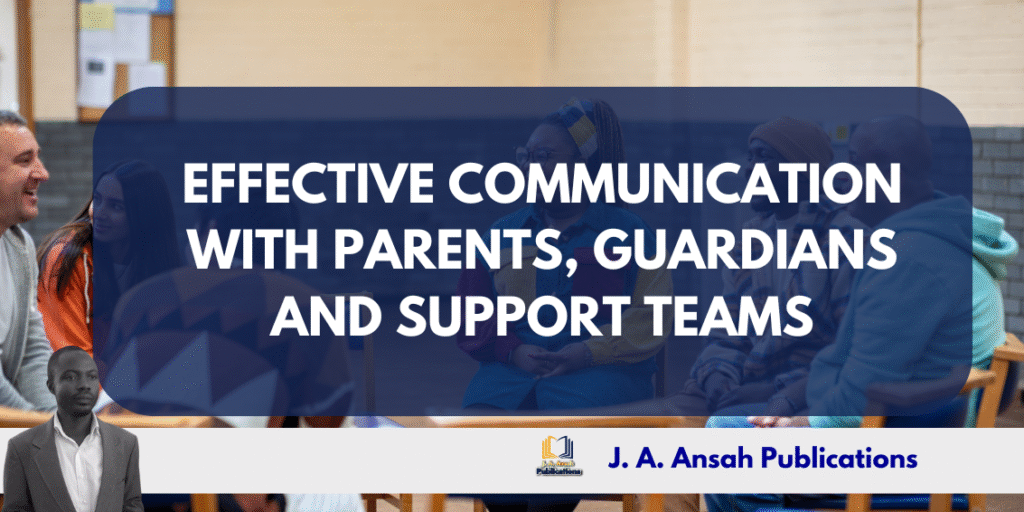EFFECTIVE COMMUNICATION WITH PARENTS, GUARDIANS AND SUPPORT TEAMS
By J. A. Ansah
Effective communication with parents, guardians and support teams is crucial for creating a collaborative and supportive educational environment. It fosters a strong partnership between educators and families, guaranteeing that students receive the best possible support and guidance. Here are some of the importance of effective communication:

1. Building Trust and Rapport: Effective communication builds trust and rapport between educators and parents, which is important for a positive partnership (Epstein, 2018). Building trust and rapport is fundamental in parent-teacher communication.
2. Student Success: Effective communication warrants that parents and educators are aligned in their goals for students’ success, resulting in improved academic and social outcomes (Henderson & Mapp, 2002). Student success is closely linked to effective communication between home and school:
3. Early Intervention: Effective communication allows for early identification of learning or behavioural issues, enabling timely intervention and support (Epstein, 2018). Early intervention is facilitated by open and effective communication between educators and parents.
4. Individualised Education: Importance: Effective communication helps educators understand the unique needs and preferences of each student, enabling the development of individualised education plans (IEPs). Effective communication is integral to the IEP process under IDEA (Individuals with Disabilities Education Act, 2004).
5. Parental Involvement: Effective communication encourages parental involvement in the educational process, leading to greater parental support and engagement (Ferlazzo & Hammond, 2009).Parental involvement is positively impacted by effective communication.
6. Addressing Concerns and Questions: Effective communication provides a platform for parents to voice concerns, ask questions, and seek clarification about their child’s education (Epstein, 2018). Addressing concerns and questions is an essential aspect of parent-teacher communication:
7. Cultural Sensitivity: Effective communication allows educators to be culturally sensitive and responsive to the diverse backgrounds and needs of students and families (Friend & Bursuck, 2020).Cultural sensitivity is fostered through effective communication.
8. Collaboration with Support Teams: Effective communication extends to collaborating with specialists and support teams, ensuring that students with unique needs receive appropriate services (Friend & Bursuck, 2020). Collaboration with support teams is enhanced through effective communication.
Effective communication with parents, guardians and support teams is a keystone of successful educational partnerships. It promotes collaboration, understanding and a shared commitment to students’ growth and development.
Source: Ansah, J. A. (n.d). Training manual for undergraduate special education students. Unpublished.


